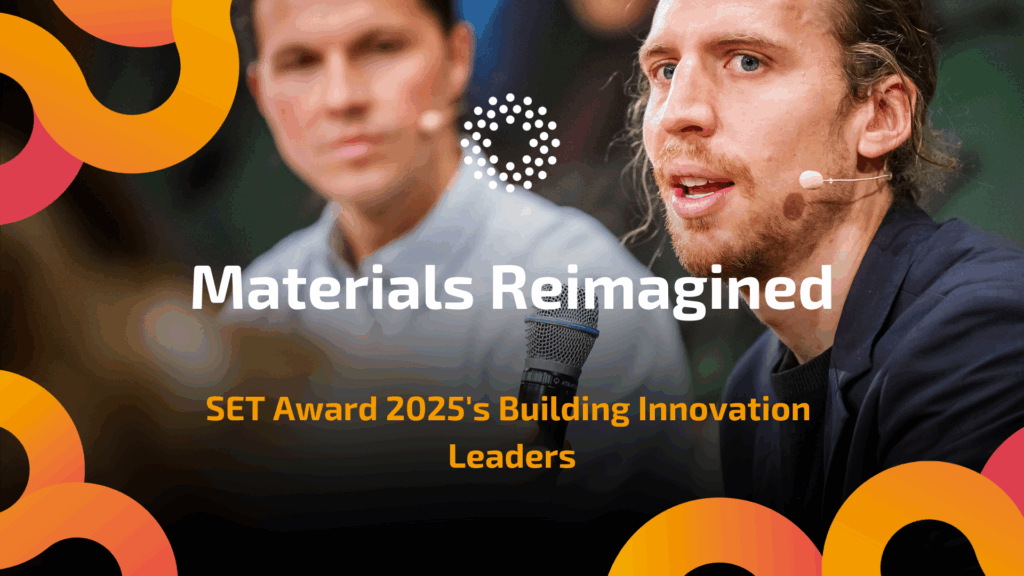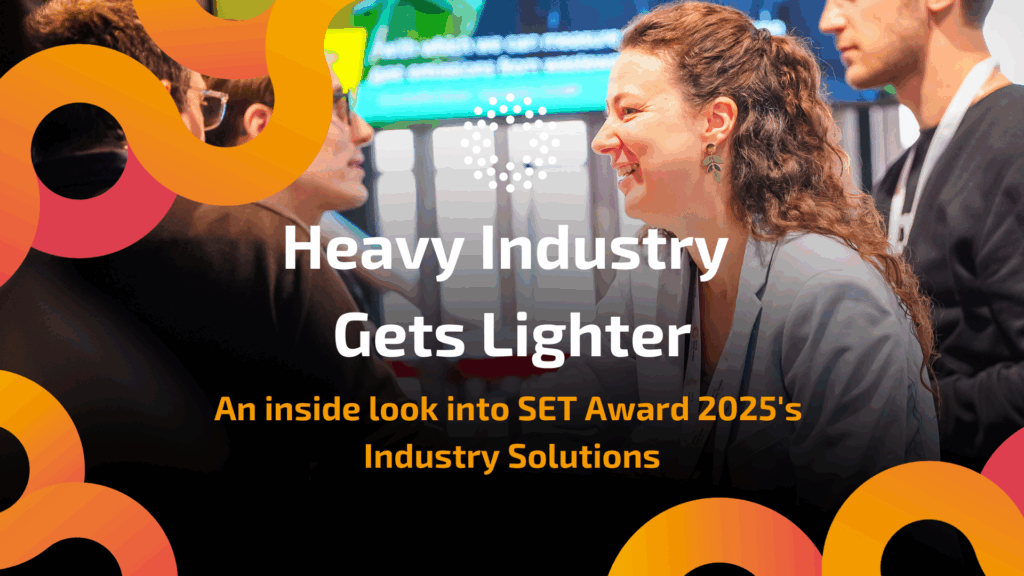Having access to affordable, clean energy isn’t just something we talk about – it’s a lifeline for communities all over the world. Just think how different your day would be if you didn’t have reliable electricity! Thankfully, the Quality Energy Access & SDG-7 category at the SET Award 2025 shines a spotlight on start-ups bringing sustainable energy to underserved populations and climate-vulnerable regions.
These innovators make up 15% of SET100 start-ups and they’re already raking in €5.5M a month, with a goal to multiply that by almost ten times in the next two years. The number of people working in the sector is set to rise from 873 today to over 1,500 by 2026. These start-ups are all about community-based energy solutions, off-grid solar, water purification tech, and turning local waste into valuable resources. Some of the more innovative approaches include pay-as-you-go solar solutions, IoT-enabled platforms for efficient energy management, and special products like solar-powered refrigeration and modular battery systems.
These technologies are vital for rural healthcare, education, and agriculture, and they can really improve quality of life. The winner, Koolboks, and the finalists, Instollar and RumiTech, are each tackling a different part of the challenge – from solar-powered refrigeration, to green workforce development, to off-grid power systems. These frontrunners show how innovative the category is, but there’s more to it than that. In this post, we’re going to take a look at the different ways we can make “energy for all” a reality.
Koolboks: Solar Refrigeration for Off-Grid Communities
In many parts of Africa, lack of refrigeration blocks food security, healthcare, and economic growth. Koolboks tackles this with solar-powered freezers featuring an ingenious “ice battery” that stores energy as ice when the sun shines, providing 24/7 cooling with no diesel or grid needed, a game-changer for vendors, farmers, and clinics.
Their innovation extends beyond technology to accessibility. Through a Pay-As-You-Go model, customers get fridges with minimal upfront cost, making payments via mobile money at intervals that match their income flow. These units double as energy hubs with USB ports and lights, addressing multiple needs simultaneously.
The regional impact is significant. With operations across Nigeria, Kenya, Uganda and beyond, Koolboks is transforming lives: helping dairy farmers preserve milk for better market prices and enabling rural clinics to safely store vaccines without unreliable grid power. As they scale up, these success stories multiply throughout Africa.
Instollar: Empowering a Green Workforce in Africa
Solving energy access isn’t just about hardware – it’s also about people. Across Africa, there’s a massive push for solar installations, but a shortage of skilled local technicians and project developers to carry it out. Instollar bridges the energy gap and the employment gap by connecting trained local solar technicians with projects needing their skills. Think LinkedIn meets TaskRabbit, but specifically for renewable energy.
Instollar has already onboarded over 900 installers, facilitated 1,500+ solar projects, and created 500+ sustainable job in communities that desperately need opportunities. Their platform simplifies financing and logistics, making sure solar projects succeed and communities benefit from lasting employment. By building human capacity, they make sure solar installations don’t just survive but thrive.
RumiTech: Hybrid Micro-Power for Anywhere, Anytime Energy
Turkey-based RumiTech delivers an ingenious solution for off-grid energy: a hybrid wind-and-solar “power pole” that packs a 5kW system with vertical-axis wind turbine, solar panels, and batteries in one compact unit. It’s essentially a standalone renewable energy tower that generates and stores its own power, ready for deployment in villages, construction sites, or any remote location.
Installation takes just 2 hours with no excavation—simply bolt it down and it immediately starts generating power from sun and wind. The built-in battery ensures reliability regardless of weather conditions, while IoT connectivity enables remote monitoring and maintenance alerts.
Each pole saves approximately 10 tons of CO₂ annually by replacing diesel generators, making it ideal for telecom towers, streetlights, rural clinics, and emergency camps. Though founded only in 2023, RumiTech has already secured $660k in seed funding, offering game-changing potential for regions where grid power remains elusive.
Driving Energy Access
What do a solar freezer, a green jobs platform, and a hybrid power pole have in common? They’re just the tip of the iceberg in this year’s impressive SET100 cohort. Beyond our top three highlighted innovators, twelve additional start-ups made the Quality Energy Access & SDG-7 list, each tackling energy access from unique angles.
Off-Grid Solar Systems & Batteries
- Acecore develops all-in-one energy storage systems with PowerCell technology for 24/7 power supply
- ACOB Lighting deploys mini-grid solar solutions for rural communities with end-to-end implementation
- Ener-G-Africa manufactures solar panels locally in Africa while expanding production capacity from 15MW to 500MW
- Energy24by7 converts existing battery systems to solar power with their iCON product at lower CAPEX
- Owanga creates modular, stackable battery packs from second-life batteries available for rent or purchase
Food Security & Agricultural Cooling
- Mvutu designs solar-powered GreenBox cold rooms that extend crop shelf life from 2 to 21 days
- Greatlakes Feeds provides solar-powered systems for fish farming along with automatic solar feeders
- SokoFresh operates solar-powered cold storage hubs with market linkage services for smallholder farmers
- Solarcool delivers off-grid cooling solutions with pay-as-you-go financing for households and businesses
Energy-Efficient Products & Services
- Ojanna Foods offers solar-dehydrated Eco-Beans that reduce cooking time from 3 hours to 30 minutes
- Casa Grata installs decentralized solar systems through microfinancing and community-based “Guardians of Light”
- SANK GREEN ENERGY integrates hybrid solar air conditioning with pay-as-you-go billing systems
Off-grid solar solutions are evolving beyond basic lighting to include comprehensive energy systems with integrated storage and smart monitoring. Pay-as-you-go (PAYG) models are democratizing access to clean energy technologies, removing upfront cost barriers for low-income communities. Local manufacturing and assembly are gaining momentum, with startups producing components within Africa to reduce costs and create jobs. Agricultural cold chain innovation is addressing food security by connecting renewable energy to post-harvest preservation. Consumer financing models are becoming more sophisticated, with flexible payment options ranging from daily rentals to lease-to-own arrangements. Cross-sector integration is increasingly common, with solutions tackling multiple challenges simultaneously, from energy access to food preservation and economic empowerment.


